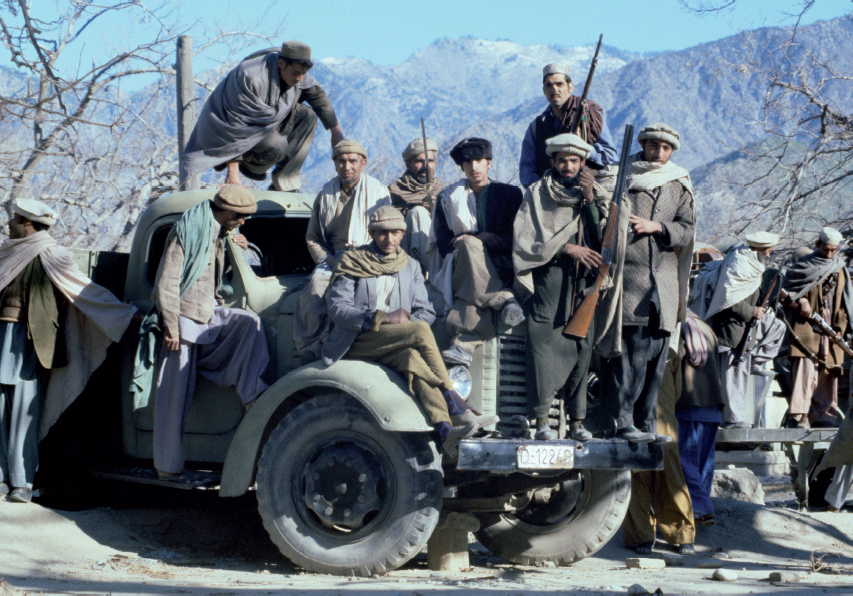Exploring American Histories: Printed Page 897
Exploring American Histories, Value Edition: Printed Page 730
The Perils of Détente
Carter made human rights a cornerstone of his foreign policy, and he was vocal in his criticism of the Soviet Union for violating the human rights requirements of the Helsinki accords that President Ford and Soviet leader Leonid Brezhnev had signed in 1975. His emphasis on human rights extended to other regimes as well. Unlike previous presidents who had supported dictatorial governments as long as they were anti-Communist, Carter intended to hold such regimes to a higher moral standard. Thus the Carter administration cut off military and economic aid to repressive regimes in Argentina, Uruguay, and Ethiopia. Still, Carter was not entirely consistent in his application of moral standards to diplomacy. Important U.S. allies around the world such as the Philippines, South Korea, and South Africa were hardly models of democracy, but national security concerns kept the president from severing ties with them.

One way that Carter tried to set an example of responsible moral leadership was by signing an agreement to return control of the Panama Canal Zone to Panama at the end of 1999. The treaty that President Theodore Roosevelt negotiated in 1903 gave the United States control over this ten-mile piece of Panamanian land forever. Panamanians resented this affront to their sovereignty, and Carter considered the occupation as a vestige of colonialism. Conservative critics viewed the transfer of land as a sign of weakness, but after extended debate the Senate ratified the treaty to relinquish the canal.
The president’s pursuit of détente, or the easing of tensions, with the Soviet Union was less successful. In 1978 the Carter administration extended full diplomatic recognition to the People’s Republic of China. Abandoning the United States’ traditional ally of Taiwan, Carter sought to drive a greater wedge between China and the Soviet Union. Nevertheless, Carter did not give up on cooperation with the Soviets. In June 1979, Carter and Brezhnev signed SALT II, a new strategic arms limitation treaty. Six months later, however, the Soviet Union invaded Afghanistan to bolster its pro-Communist Afghan regime. President Carter viewed this action as a violation of international law and a threat to Middle East oil supplies and persuaded the Senate to drop consideration of SALT II. To counter Soviet aggression in Afghanistan, Carter obtained from Congress a 5 percent increase in military spending. The Carter administration also reduced grain sales to the USSR and led a boycott of the 1980 Olympic Games in Moscow to punish the Soviet Union for its invasion of Afghanistan.
Of perhaps the greatest long-term importance was President Carter’s decision to authorize the CIA to provide covert military and economic assistance to Afghan rebels resisting the Soviet invasion. Chief among these groups were the mujahideen, or warriors who wage jihad. Although portrayed as freedom fighters, these Islamic fundamentalists (including a group known as the Taliban) did not support democracy in the Western sense, and many of them were dedicated to creating a theocratic Islamic nation in Afghanistan. Among the mujahideen who received assistance from the United States was Osama bin Laden, a Saudi Arabian Islamic fundamentalist.
In ordering these CIA operations, Carter ignored recent revelations about questionable intelligence practices. Responding to presidential excesses stemming from the Vietnam War and the Watergate scandal, the Senate had held hearings in 1975 into clandestine CIA and FBI activities at home and abroad. Led by Frank Church of Idaho, the Senate Select Committee to Study Governmental Operations with Respect to Intelligence Activities (known as the Church Committee) issued reports revealing that both intelligence agencies had illegally spied on Americans and that the CIA had fomented revolution abroad, contrary to the provisions of its charter. Despite the Church Committee’s findings, Carter revived some of these murky practices to combat the Soviets in Afghanistan.